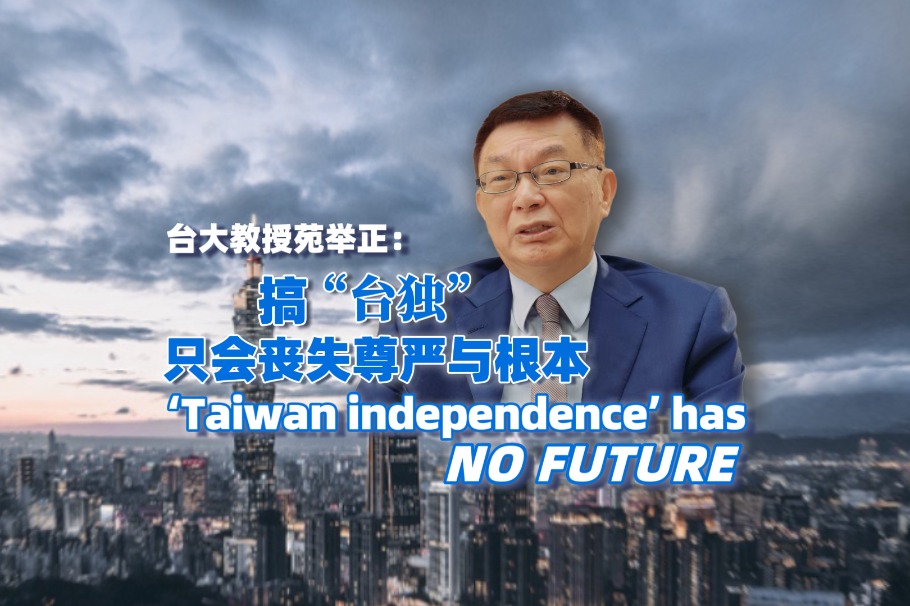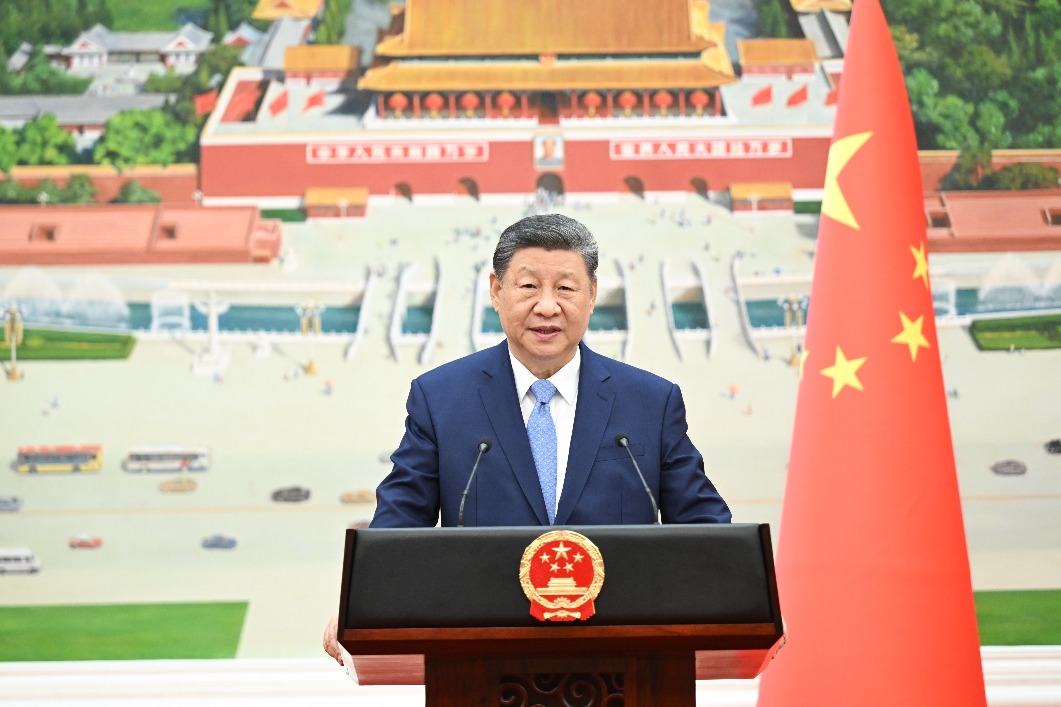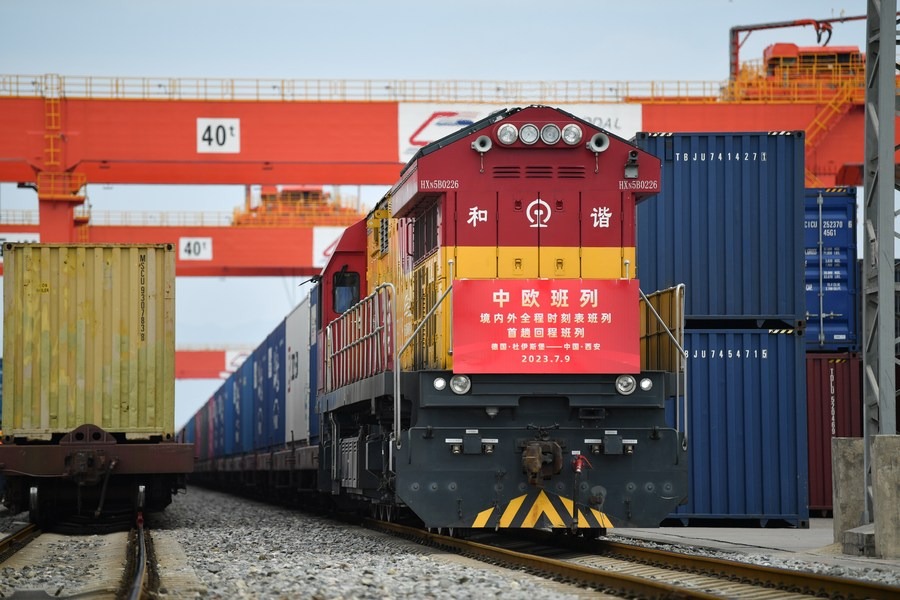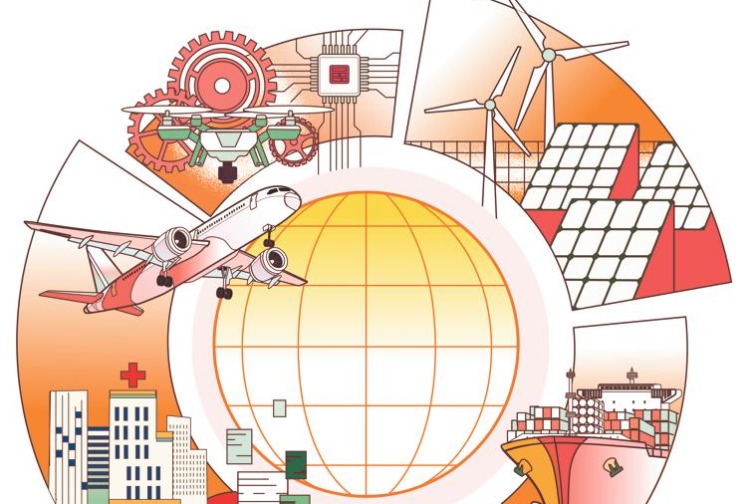Turning challenges into opportunities


Editor's note: The 25th China-EU Summit was held in Beijing on Thursday. As each other's second-largest trade partner, the two still stand for cooperation across sectors. Three experts share their views on this issue with China Daily.
The China-European Union Summit in Beijing on Thursday carried the historical weight of the moment. This year marks the 50th anniversary of the establishment of China-EU diplomatic relations. Yet this landmark is tempered by the growing gap between what the EU and China could achieve through constructive collaboration and the reality of the challenges that now define their relationship. This calls for reflection on the opportunities they could still seize despite the constraints.
When it comes to trade, the EU and China are both partners and competitors, with a complex web of interdependence. For decades, China has been an engine of growth for Europe, while Europe has served as a key market for Chinese exports. But what was once seen as a mutually beneficial relationship is now marked by tensions, and what appears to be structural challenges.
China is quietly undergoing a transformative shift in its economic model — a move toward high-quality development. As China excels in industries such as electric vehicles and green technologies, Chinese companies are becoming increasingly strong competitors for EU companies that once thrived in some of these sectors.
The rising protectionist sentiment in the EU only adds to the difficulty. On the EU side, there is growing apprehension about China's industrial policy and the "lack of a level playing field" for European enterprises in the Chinese market. On the Chinese side, there is unease over the EU's actions, such as tighter investment screening mechanisms and the push for "de-risking" from China, which threatens to sever the ties that both sides have worked so hard to build.
These trade tensions are compounded by wider concerns about the global economic landscape. The COVID-19 pandemic exposed vulnerabilities in supply chains, and the Russia-Ukraine conflict has only exacerbated the situation. In essence, trade is no longer a neutral space, but one fraught with strategic calculations.
The differences between China and the EU over the Russia-Ukraine conflict have injected a significant level of suspicion, if not outright mistrust, into their relationship. These geopolitical differences must not become a wedge that irreparably fractures the China-EU relationship. The two sides therefore need to carefully navigate this sensitive issue, maintaining dialogue on global security and finding common ground on issues such as arms control, non-proliferation and artificial intelligence.
Also, the shadow of US policy looms large over EU-China relations, especially because the United States has adopted a more adversarial approach toward both China and the EU, imposing tariffs on their goods and disrupting longstanding trade ties. For both Brussels and Beijing, Washington's unpredictable foreign policy presents a challenge. Hence, the priority for both sides should be to calibrate their responses to the US in a way that does not jeopardize their own long-term interests.
Despite the complexities, there is one thing that the EU and China share: the recognition that they must find ways to deepen cooperation however difficult. Chinese President Xi Jinping, to EU leaders, rightly emphasized the importance for China and the EU, both constructive forces for multilateralism and openness and cooperation, to strengthen communication, enhance trust and deepen cooperation in a more challenging and complex international landscape.
While there is no denying the mounting challenges, there is much to gain from collaboration. Both sides converge on issues like multilateralism and climate change, with these commonalities providing the foundation for a more cooperative future.
On the occasion of the Beijing summit, the EU reaffirmed its commitment to deepen engagement with China and enhance cooperation to address shared global challenges. In this context, the two sides issued a joint press statement on climate change, underscoring a commitment that should not be underestimated. In an increasingly fragmented world, where geopolitical and economic divisions are widening, the EU and China must lead by example, as their partnership can help build a more stable, connected and prosperous world.
The two sides must send a signal of pragmatic cooperation, and realize that diplomacy is about finding common ground even amid differences. The EU and China should balance ideals with reality, embrace strategic autonomy, and focus on what they can achieve together. This will not only strengthen their relationship but also help bridge the divides between other economies and regions, promoting progress rather than regression.
The 50th anniversary of the China-EU diplomatic relations is not just a moment for reflection, but a call to action — a reminder that the future is shaped by the choices we make today. Leadership finds its true meaning not in times of ease, but in moments of complexity, when true leaders have the opportunity to demonstrate their character and long-term vision by finding innovative solutions that unlock opportunities and set us on a trajectory of progress.
The author, a specialist in global affairs and sinology, is the founder of the China-Europe-America Global Initiative.
The views don't necessarily reflect those of China Daily.
If you have a specific expertise, or would like to share your thought about our stories, then send us your writings at opinion@chinadaily.com.cn, and comment@chinadaily.com.cn.































